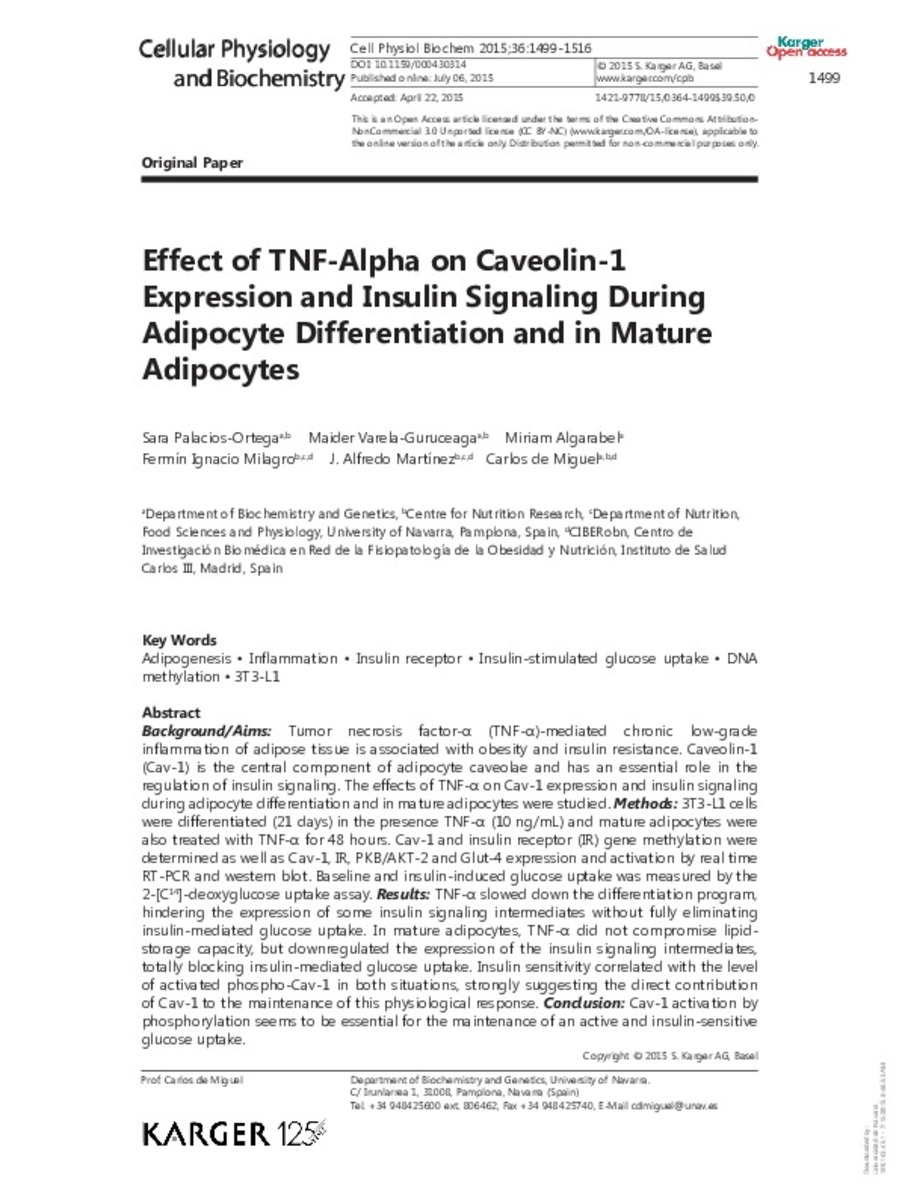Effect of TNF-Alpha on caveolin-1 expression and insulin signaling during adipocyte differentiation and in mature adipocytes
Keywords:
Adipogenesis
Inflammation
Insulin receptor
Insulin-stimulated glucose uptake
DNA methylation
3T3-L1
Project:
CIBERobn, Nutrigenio project (MINECO, Spain) and Linea Especial “Nutrition, Obesity and Health” of the University of Navarra (LE/97)
Editorial note:
Creative Commons Attribution-NonCommercial 3.0 Unported license (CC BY-NC)
Citation:
Palacios-Ortega S, Varela-Guruceaga M, Algarabel M, Milagro FI, Martínez JA, de Miguel C. Effect of TNF-Alpha on caveolin-1 expression and insulin signaling during adipocyte differentiation and in mature adipocytes. Cell Physiol Biochem. 2015 Jul 6;36(4):1499-1516
Statistics and impact
0 citas en

0 citas en

Items in Dadun are protected by copyright, with all rights reserved, unless otherwise indicated.









